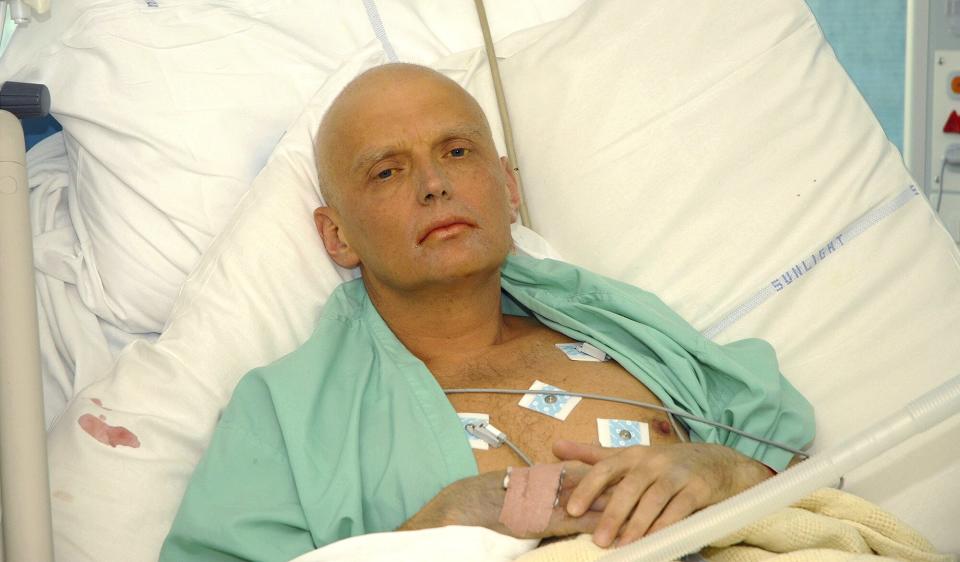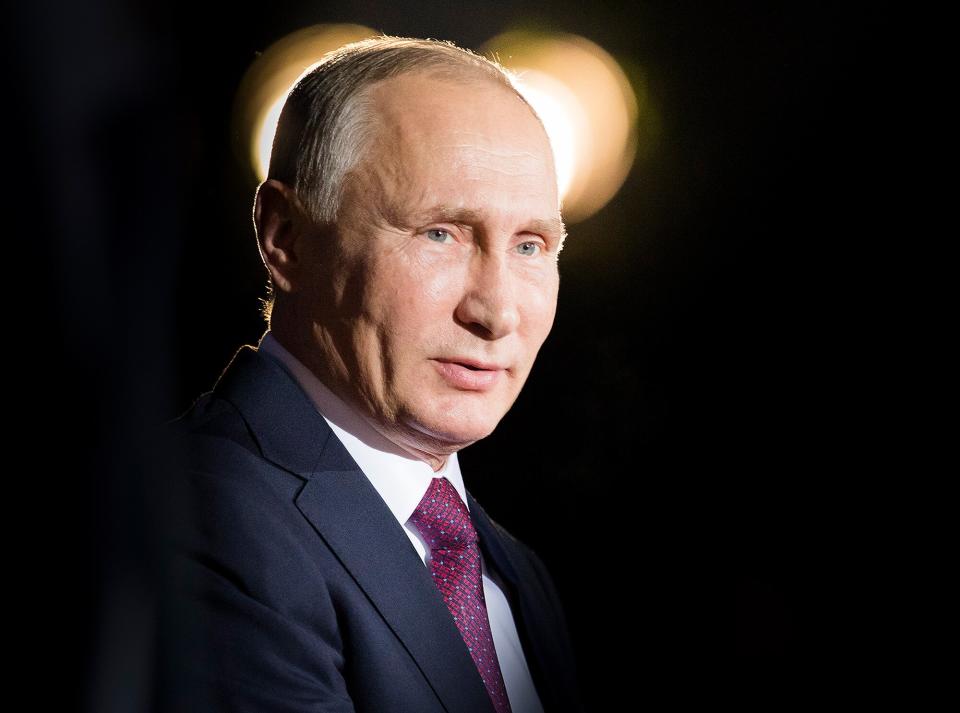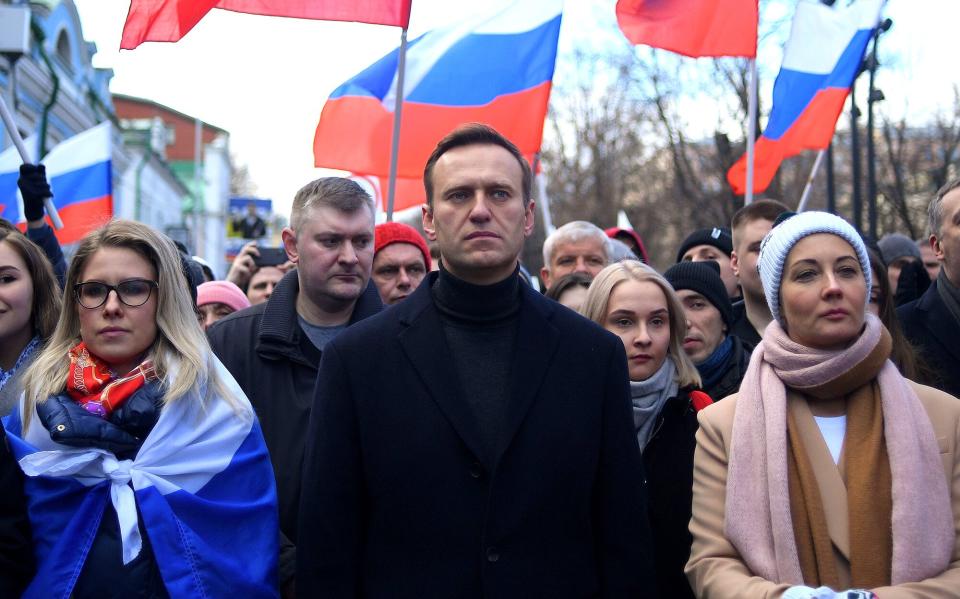Former Spy Assassinated with Radioactive Green Tea in Russian Plot, Court Rules

Natasja Weitsz/Getty Images Alexander Litvinenko
A European high court ruled this week that it was likely Russia was behind the assassination of intelligence officer-turned-dissident Alexander Litvinenko, who was killed in 2006 after drinking green tea laced with a radioactive substance.
Litvinenko's widow had taken the case to the European Court of Human Rights, which on Tuesday broadly confirmed the findings of a 2016 inquiry into his death: He was poisoned in November 2006 by two Russian men and there was a "strong prima facie case that" they were acting on behalf of the government.
The two men, Andrei Lugovoi and Dmitri Kovtun, are still being sought in Britain for Litvinenko's killing, the court said in its ruling. Both are now in Russia.
A Russian government spokesman and Lugovoi, now a lawmaker, dismissed the latest findings as "idiotic," claiming political bias, the Associated Press reported.
"There are still no results from this investigation and making such claims is at the very least unsubstantiated," the Kremlin spokesman said, per Reuters.
The European court had criticized Russia for failing to fully participate in the case and failing to offer an alternative explanation for Litvinenko's death or to dispute the findings of the previous inquiry in the U.K.
The court ordered Russia to pay Litvinenko's widow, Marina, 122,500 euros (approximately $144,000).
"This case helps other people not give up and try to change what might happen in Russia. One day Russia [could] become a better country to everybody," Marina told British media afterward, according to the AP.
Litvinenko had become a vocal critic of the Kremlin and of Vladimir Putin after defecting from Russia, moving to London, becoming a British citizen and reportedly consulting for British intelligence agency MI6.
He was a colorful, cantankerous figure in anti-Kremlin circles: As TIME previously detailed, he wrote two anti-Putin books and worked on documentaries that were critical of the regime — as well as made several startling claims about Putin's personal life and alleged corruption.
According to the BBC, his defection in the 2000s came after he and other government agents publicly alleged that their superiors had ordered the assassination of a Russian oligarch. (In the murkiness of post-Soviet Russian life, Litvinenko's story were suspected by some of being a stunt put on by that same billionaire businessman, who became a close ally.)
RELATED: U.S. Warns 'There Will Be Consequences' If Russian Dissident Alexei Navalny Dies

Florian Gaertner/Photothek via Getty Vladimir Putin
Putin, then head of the security service where Litvinenko worked, was angered by his press conference, according to TIME.
Litvinenko was arrested following his accusations, made in 1998, but he was acquitted the following year, re-arrested and ultimately released when the charges against him were dismissed in 2000, according to TIME.
Shortly after, he left Russia for the U.K., moving to London with his family after being granted asylum.
He became a citizen in 2006 but his new life came to an abrupt end later that year when he was served a lethal cup of green tea, which investigators later found was spiked with a toxic amount of polonium 210, according to the court's ruling this week.
The BBC reports that, on Nov. 1 of that year, Litvinenko, then 43, was meeting with two fellow former Russian agents — Lugovoi and Kovtun — to discuss Spanish links to the Russian mafia.
Shortly after the other two men left their meeting (during which they all drank tea), Litvinenko fell ill and began vomiting. He was admitted to a London hospital three days later.
Litvinenko died slowly, over a matter of weeks, and investigators only discovered the precise nature of his radiation poisoning right before he died, according to TIME.
While in the hospital, he spoke to the BBC Russian Service, telling the outlet he was in "very bad shape" and had been poisoned. According to TIME, he blamed Putin.
RELATED: George & Amal Clooney Speak Out About Vladimir Putin Critic Alexei Navalny, Jailed After Poisoning
He died on Nov. 23 with his wife, father, and son at his side, the BBC reported. The bizarre nature of his poisoning immediately touched off an investigation, according to a 2006 TIME report.
Even then, however, outside experts noted that Litvinenko's career could have made him many enemies beyond Putin, then Russia's president. Putin ordering the killing of a new British citizen in Britain would risk an international incident.
One former CIA officer told the magazine then: "Take a deep breath and take a look at Putin and say, 'Is he stupid or insane?' "
Investigators determined otherwise.
Following an inquiry into his death, the Royal Courts of Justice in London concluded that the assassination had "probably" been approved by Putin, announcing their findings in a report published in 2016.
In its ruling this week the European Court of Human Rights agreed with that invetigation, ruling that Lugovoi and Kovtun were the ones who "beyond a reasonable doubt" poisoned him and that there was a convincing case they acted on behalf of the state.
Both Russia and Lugovoi and Kovtun have denied any involvement in the killing and, as The Washington Post reports, Russia has refused to extradite the two men. In fact, in 2015 Russian Putin granted Lugovoi a state medal for "services to the motherland."
Litvinenko isn't the only one of the Kremlin's critics to be mysteriously poisoned or killed.

KIRILL KUDRYAVTSEV/AFP via Getty Alexei Navalny (center) at a demonstration in Moscow in 2020
Earlier this year, Russian opposition leader Alexei Navalny accused the Kremlin of attempting to assassinate him with a nerve agent and subsequently jailing him on politically motivated charges.
Navalny, who is being held in prison on a two-and-a-half year fraud sentence, was detained after Russian officials said he broke probation by being hospitalized in Germany after surviving a poisoning last year.
Navalny's case sparked widespread protests across Russia in the months after he was first imprisoned. The Russian government denies his claims.

 Yahoo Finance
Yahoo Finance 